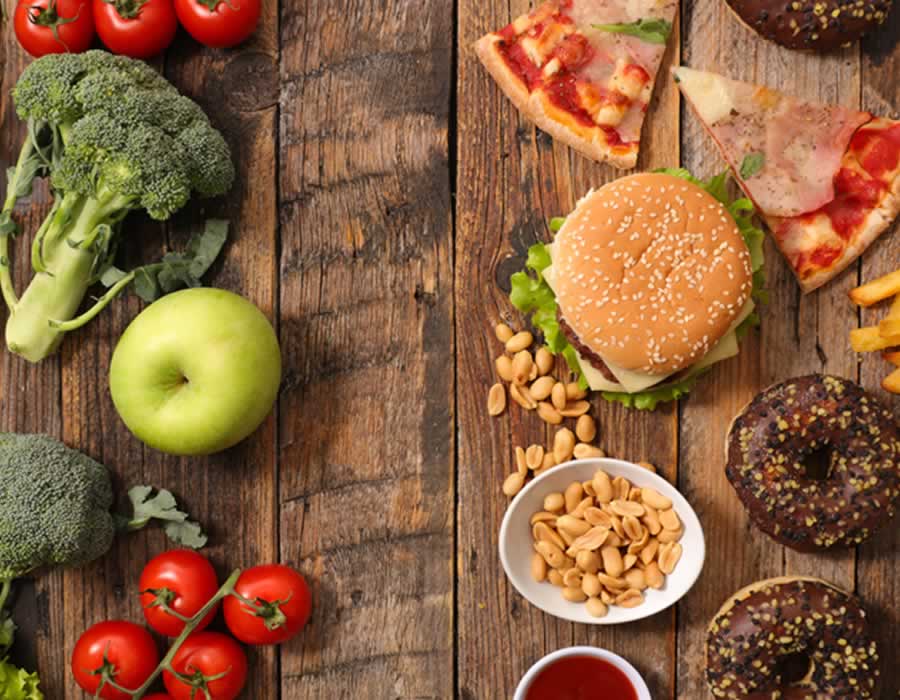
Stress & Overeating – Do you tend to turn to food when stressed?
Have you noticed that when you are more stressed you may eat more than usual or you may crave more fast food, high in carbs and sugar?
It is very normal to react this way. You are not alone.
Some people may eat more (especially high fat and high sugar foods like crisps, chocolates etc.) during times of stress, while others report a decrease or no change.
Stress may be one of the reasons you feel less energetic therefore:
- you may do less physical activity
- you maysuffer from insomnia, which could lead to an increase in appetite
- the stress hormone cortisol can trigger cravings for salty, sweet and high-fat foods.
Interesting, isn't it? We need to look into what it means for our body to feel stressed and why it reacts to this state of mind by wanting a specific type of food. Ready?
What is 'stress'?
When faced with the appearance of a large, angry-looking, wild animal we tend to experience the emotions of fear and anxiety and our instinct would be to run, save ourselves, or fight, right? These emotions produce hormones and chemicals in our body to get ready and respond as quickly as possible to this potentially life-threatening situation.
Before we decide how to behave the best we can in this situation, our emotions cause an increase in our heart rate and the supply of fuel in our blood ready for the physical action about to take place. At this point, we behave either by running away or fighting.
Stress describes the feelings that people experience when life demands more of them than they can give when their ability to cope is reduced or not sufficient. People can often feel overwhelmed, emotional and under pressure during these times.
Everyone is affected by stress and it is a completely normal reaction that we all experience from time to time when faced with situations that we feel are too much for us. It is okay to feel vulnerable or seemingly lose control when we find ourselves exposed to this emotional roller-coaster. Sources of stress may include life experiences, work, relationships, money, traumas, everyday hassles, family, work-life balance etc.
Did you know, that feelings of stress can be created within ourselves?We are good at imagining and getting ready for the worst before it happens. By simply visualising this potentially threatening, risky future we can unlock the spiralling thoughts and feelings that may cause stress including unrealistic expectations, uncertainties, low self-esteem and feeling something bad is going to happen even if we don't necessarily have evidence of it yet.
We all differ from each other, therefore we all respond to stress in many different ways. You may feel safer, and calmer when we can reach for food to soothe our physical and emotional stress.
Food has always been an emotional act. It's easy, fast and effective! It can make us happy, feel connected to others, it gives us energy, helps us move our body and use our brain. The list can go on about why food is great for us, which may be why so many people use food as their primary source to deal with overwhelming emotions.

Do you Eat or Drink Because of Stress?
I should... I want...
Have you ever caught yourself repeating these words in your head?
- 'Shoulds' - these are demands on your time - 'I should exercise more; 'I should eat healthier and lose weight.’
- 'Wants' - these are fulfilling, enjoyable activities - 'I want to eat whatever I want and not gain weight; 'I want to have fun when exercising.'
If your life is full of 'shoulds' you may experience constant stress. This can generate a lot of pressure,negative emotions and feelings, and can create a high desire for pleasure.
This in turn leads to a high-risk situation where you may rationalise an indulgence such as overeating as 'justified'.
"I'm so busy at work, I deserve to eat this chocolate bar", "I should do some exercise, but I am extremely tired tonight, and my favourite program is on TV, maybe tomorrow"
Not having other non-food pleasurable activities may lead you to view eating or drinking as the only means of escape to obtain pleasure or avoid emotional distress.
Exercise
List the 'shoulds' in your life - the demands on your time and what you think you 'should be doing'.
Now list the 'wants' (The activities you like doing and want to do more of, but not related to food or alcohol).
Do you think there is a balance between 'shoulds' and 'wants'? Think about your eating habits, do you think you eat to balance out the 'shoulds' in your life?
What alternative pleasurable activities you can do instead of eating or drinking?
We hope that this activity has been helpful for you to reflect on alternative ways to cope with stress other than just food! We would like to specify that eating out of emotional stress or overload is perfectly fine and normal. The aim of this article is to show you a different perspective on how you may be able to reduce stress by being more mindful and aware of your thought process and possibly changing the narrative in your head.
Keep an eye on our website as more interesting and informative articles.



